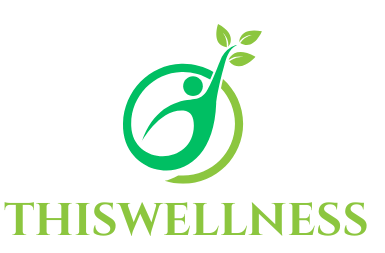Compare and Contrast Mental Health and Emotional Health:
You’ve probably heard the terms mental health and emotional health used interchangeably — but do you really know what separates one from the other? Understanding the subtle yet important differences between these two can transform how you care for yourself and others. When you learn how to compare and contrast mental health and emotional health, you gain a clearer picture of your overall wellbeing. This clarity empowers you to make smarter choices, cope better with challenges, and build resilience that lasts.
Table of Contents
In this article, we’ll take you step-by-step through the definitions, components, and real-life implications of both mental and emotional health. You’ll find practical advice tailored to help you nurture both areas in your life. Let’s dive in and unravel these essential parts of your wellbeing.
What Is Mental Health?
Defining Mental Health in Everyday Terms
Mental health refers to your psychological and cognitive functioning — basically, how your mind processes thoughts, emotions, and behaviors. It influences how you manage stress, relate to others, and make choices. When your mental health is strong, you feel equipped to navigate life’s ups and downs, stay productive, and enjoy meaningful relationships.
Mental health includes conditions that might need professional care, like anxiety, depression, bipolar disorder, or schizophrenia. According to the World Health Organization, approximately one in eight people worldwide live with a mental health condition at some point in their lives, emphasizing how common and important it is.
Key Aspects of Mental Health
- Cognitive Function: How you think, learn, and remember.
- Emotional Regulation: Your ability to manage feelings in healthy ways.
- Behavioral Responses: How you act and respond to situations.
- Resilience: Your capacity to bounce back from adversity.
Understanding these parts helps you see mental health as a broad, dynamic process that touches every aspect of your daily life.
What Is Emotional Health?
Exploring Emotional Health Beyond Feelings
Emotional health focuses on your ability to understand, express, and manage your emotions effectively. It’s about being aware of what you’re feeling, why you feel that way, and knowing how to handle emotions — both pleasant and difficult ones — without letting them overwhelm you.
You might think of emotional health as your emotional intelligence in action: the skill of recognizing your feelings and the feelings of others, and responding in thoughtful, appropriate ways.
Core Components of Emotional Health
- Emotional Awareness: Knowing your emotions and their sources.
- Emotional Expression: Sharing your feelings openly and honestly.
- Stress Management: Using healthy strategies to handle pressure.
- Empathy: Understanding others’ emotions and perspectives.
When your emotional health is strong, you’re better at forming connections, communicating effectively, and maintaining balance through life’s challenges.
Compare and Contrast Mental Health and Emotional Health
What They Have in Common
While mental and emotional health are distinct, they share many links:
- Both affect your overall wellbeing.
- Each influences your behavior and decision-making.
- They are interconnected, often influencing and supporting each other.
- Both can fluctuate over time, requiring ongoing attention and care.
How They Differ
Understanding their differences lets you focus on what each needs to thrive:
| Aspect | Mental Health | Emotional Health |
|---|---|---|
| Definition | Psychological and cognitive wellness | Awareness and management of feelings |
| Focus | Mind’s overall function and balance | Emotional experience and regulation |
| Measurement | Clinical assessments, diagnosis | Self-awareness and emotional intelligence |
| Examples | Depression, anxiety, bipolar disorder | Mood swings, stress response, empathy |
For example, mental health conditions often involve clinical symptoms that affect your thinking and behavior significantly. Emotional health, while linked, is more about how you feel and express those feelings in everyday life.
Why Understanding Both Matters for Your Wellbeing
The Interplay Between Mental and Emotional Health
When you look closely, your mental and emotional health create a feedback loop. Poor emotional regulation might lead to anxiety or depression, while mental health struggles can make it harder to manage emotions effectively.
For instance, if you’re feeling overwhelmed emotionally, your mental clarity may suffer. Conversely, a mental health condition can amplify emotional instability.
Practical Ways to Care for Both Mental and Emotional Health
Taking steps to nurture these areas can boost your quality of life:
- Practice Mindfulness: Focus on the present moment to reduce stress and enhance emotional awareness.
- Seek Professional Help: Therapy and counseling can guide you through challenges.
- Maintain a Healthy Lifestyle: Good sleep, balanced nutrition, and regular exercise support brain and emotional function.
- Build Social Connections: Positive relationships strengthen emotional support.
- Use Journaling: Track your feelings to recognize patterns and triggers.
FAQs on Comparing and Contrasting Mental Health and Emotional Health
What is the difference between mental health and emotional health?
Mental health is your overall psychological and cognitive functioning, while emotional health refers specifically to your ability to understand and manage your emotions.
Can poor emotional health lead to mental health disorders?
Yes, struggling with emotional regulation can contribute to the development or worsening of mental health conditions such as anxiety or depression.
How can I improve both my mental and emotional health?
You can improve both by practicing mindfulness, seeking counseling, staying active, and building healthy social connections.
Are mental health and emotional health equally important?
Absolutely. Both are vital parts of your wellbeing, and neglecting one can negatively affect the other.
When should I seek professional help for mental vs. emotional health issues?
If you experience persistent symptoms like deep sadness, anxiety, or inability to cope, seek professional help. Emotional difficulties that interfere with daily life also warrant support.
Conclusion
By now, you see why it’s crucial to compare and contrast mental health and emotional health. Knowing the differences helps you better understand your mind and emotions, while recognizing their similarities reminds you that caring for one means caring for both. Your wellbeing depends on this balance.
Take time today to reflect on how you can nurture your mental and emotional health. Whether through self-care, seeking support, or learning new skills, you hold the power to improve your life. Start small, stay consistent, and watch how your wellbeing transforms.
Ready to take the next step? Explore resources, talk to a professional, or begin a simple mindfulness practice today — your future self will thank you.
If you want, I can also help create engaging social media snippets, meta descriptions, or FAQs for this article. Would you like me to?
Demander à ChatGPT




